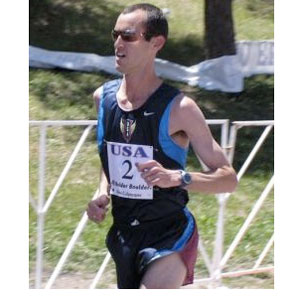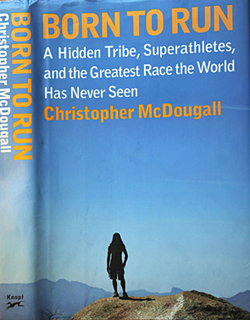A few words with Meb Keflezighi
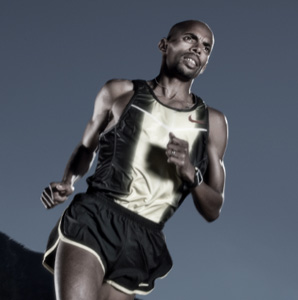
In 2009 Meb Keflezighi became the first American male to win the ING New York City Marathon since 1982 and is currently preparing to defend his title. We had a chance to chat with this very fast marathoner.
Slowtwitch: Meb thank you so much for checking in with us.
Meb: Thank you; it’s great to be speaking with you today. I appreciate you taking the time to catch up on what I’m doing.
ST: We assume that the 2010 ING NYC Marathon is the big goal of this season. Is that actually so and how are your preparations going?
Meb: Yes, the 2010 ING New York City Marathon is one of my biggest goals. Winning last year was a dream come true. So far this year, my training is going pretty well. Right now I’m preparing for the Rock N Roll San Jose half marathon on October 3, which serves as a tune up race – precisely what I did last year. It helped me get in racing mode and I am hoping it will do so again this year with the ultimate goal of competing in the New York City Marathon and doing well there again.
ST: How much has your life changed in general having won the event last year?
Meb: It has made a big impact on my life and in the life of my family. I’d even say it has made a big impact in long distance running in the United States. It was what we needed to see – a US athlete cross the finish line in first place. To wear the USA jersey and win the event was very special. I’m definitely making more appearances and more people have taken an interest in me and my racing. I have been in more demand since I’ve won. In fact, I recently completed my autobiography which will be available on Nov. 1st-, “Run to Overcome.” I also had the opportunity to be a special guest at a Knicks game. I was a guest on Late Night with David Letterman. I rode on the Statue of Liberty float with Miss America during the Macy’s Thanksgiving Day Parade- so many wonderful things have happened, so yes, my life has changed dramatically.
It is an honor to win, but it comes with a lot of responsibility.
ST: Did you enjoy hanging out with Dave Letterman?
Meb: Yes, he was very nice and very happy for me. I had a good time hanging out with him and being on the show.
ST: Did he try to challenge you to a race?
Meb: No – but I heard he was a runner, so I wanted to ask him about how much running he is doing. But I didn't have the chance to.
ST: Do you feel more pressure going into the upcoming NYC Marathon as the defending champion, or now that you have won that race, is it actually less pressure?
Meb: I think I have less personal pressure on myself – my dream came true last year. But perhaps I feel more pressure from others to have an American win it again. My personal expectations for this year’s race are to compete well and to have fun. You can dream the same dream twice.
ST: You did not qualify for the Olympic team in 2008. How much of a disappointment was that? And did the death of Ryan Shay put all of that in perspective?
Meb: Not making the 2008 Olympics was disappointing, but the bigger disappointment was the great loss of my friend. It did keep things in perspective. To have someone who used to stand next to you at the starting line, and no longer be there is a great sadness.
ST: When and how did you find out that Ryan had died?
Meb: When I finished the race, a friend came over and told me. It was a very difficult day.
ST: How did you re-focus after all that?
Meb: After I did not qualify, I looked forward to the New York City Marathon as “my Olympics.” Competition in the race last year showed a very talented field with some of the top runners in the world. It was a field worthy of an Olympic Games. It was almost the same status as the Olympics for me.
ST: London 2012 is on the horizon and an opportunity to add another medal to your mantle. Is that event the big goal?
Meb: The next Olympics is my big goal. I definitely want to add another Olympic medal to my resume. I also think 2012 would be a great way to finish my career – and I hope to be on the podium.
ST: Looking back at your career so far, which result meant the most and why?
Meb: Looking back, two events stand out right away. One is the 2004 Olympics where I was able to secure the silver medal. Being the first American to accomplish this in quite some time makes it particularly memorable. It was special to be on the podium, to see our flag hoisted – especially in such iconic Games in Athens with the rich history and culture of the marathon and Olympics.
The other result that comes to mind, and this means something special to me for personal reasons, is winning the ING New York City Marathon in 2009. In order to even compete, I had to overcome some challenges. In 2008, due to a severe injury, I couldn’t walk. I had to crawl if I wanted to get around. Even resting at night was painful since it took so much effort to move my leg. Working through that trial and winning the marathon was an illustration of what can be accomplished when you have faith in yourself and utilize the resources available to support you.
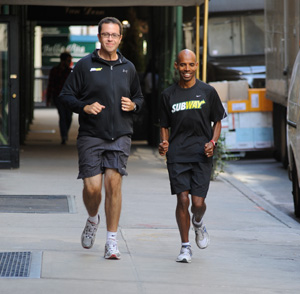
ST: You are currently in NYC far away from your base in Mammoth Lakes, CA. Isn't it a bit early to hang out in the Big Apple?
Meb: I’m here in New York to help my friend Jared, from SUBWAY, train for the ING New York City Marathon. It is a bit early to be in the Big Apple, but I am here for a great cause. Jared has been a great inspiration for many, including myself, and I also want to encourage people to make healthy decisions.
I am still getting in my training. I already did a 10-mile run even though I have been traveling for most of the day.
ST: How often do you do such appearances and activities now?
Meb: Since the New York City Marathon last year, great things have been happening. I’ve gained some opportunities to work with some great companies. In addition to working with Nike and Powerbar for several years, I am now also partnered with Generation UCAN and Sony Walkman. When they make requests for my time, I do what I can to accommodate. But they understand my priority is to win races and to get in my training – they have been great to work with.
ST: Do you find it hard to get your training in when you are traveling? It is one thing to get a 5k or 10k run in, but longer distances aren't always easy.
Meb: One of the great things of this sport is that you need shoes, shirt and shorts – and you’re all set. You may have to sacrifice a little sleep, but you can still train even while you’re travelling. I personally like to run a little earlier in the day, prior to my flights. But sometimes that just isn’t possible. This morning I left Los Angeles at 7 am, but I was still able to get in my 10-mile run at Central Park after landing in New York City.
Part of running is to go places and enjoy the scenery and I try to do that while I travel. Where there is a will, there is a way.
ST: What training volume do you currently have?
Meb: My training volume right now is pretty heavy. I’ve been doing 120 miles back to back for the past two weeks. I’ll push for another three to four weeks, then take it back a bit in preparation for the marathon.
ST: You were born in Eritrea, but moved to the USA at a very young age. How much do you even remember from that time in Eritrea?
Meb: I was 10 when I left. But I still remember a lot. I’ve also been learning about the challenges and struggles going on there. I do remember the war and I have some vivid memories of life there, but also some that are a bit vague. I remember as a child we didn’t have a soccer ball, so we improvised with a make shift ball made of socks.
It is a good country and I still have relatives there. In fact, I’ve been back twice in the past few years.
ST: Many people don't know that you really grew up in the USA and didn't just come here as an adult to get an athletic citizenship. Does this topic come up regularly?
Meb: I don't get that question that much, but when I do it is always an interesting topic of conversation. I think since New York people have learned about me and hopefully I am a good example of why this is a great place.
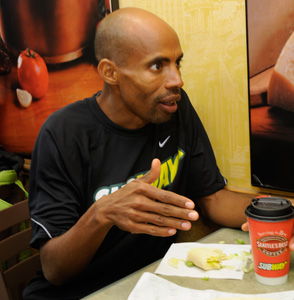
ST: Obesity isn't really an issue in Eritrea or other parts of Africa. How much of a shock is it to other African runners when they come here and see all these overweight people?
Meb: In Eritrea, the bigger you are, usually the better lifestyle you have. It’s almost seen as a sign of wealth. So that is usually the perception they have – they don’t understand the health risks that accompany obesity. It isn’t something you see very much. In Africa, you do a lot of walking on your feet, a lot of manual labor – so it is common to be thin and skinny. The lifestyle in the USA and the choices are probably the biggest causes of obesity in children and adults.
ST: Talk a bit about your diet.
Meb: Being health conscious is important to me. I’ve been eating at SUBWAY since my college years at UCLA. I also have a foundation – the MEB Foundation which stands for Maintaining Excellent Balance – which focuses on health, fitness and education. I am hoping to help support healthy living.
For my personal nutrition, on long run days, in my diet I try to have pasta and meatballs before the run.
On light days I will have turkey with lettuce and tomatoes – that’s actually what I usually eat at SUBWAY, turkey sandwich.
I will also eat eggs in the morning for my protein and then at night, I will have steak or other type of beef. Also, right away, when I get home I have a protein shake.
On easy days I also tend to eat a lot of fruit.
I also supplement my diet with PowerBars in between meals, and Generation UCAN for recovery after workouts.
ST: We feel obligated to ask you if you have considered doing a triathlon, and which of the 3 elements of a triathlon sound least appealing?
Meb: A lot of people have tried to talk me into that. But they know my weakest link is swimming – I sink. Competing in a triathlon has crossed my mind. I have the background in running and I believe I can handle the cycling-since its part of my cross training, along with aqua-jogging-, but the swimming would be very tough.
ST: Anything else we should know?
Meb: For anyone interested in more of my background, they can learn more at www.runtoovercome.com, which, as I said, is also the title of my autobiography. It details some of the challenges my family has overcome and what has helped me get to where I am today and how to make the best of life.
Thank you again for taking the time to speak with me.



